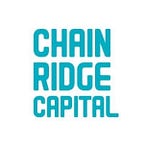The Seatlab Shift
The Future of Ticketing
The Industry Evolution
The ticketing industry has gone through a lot of changes since its inception during the 16th century. In fact, the term “ticket” first appeared in 1520 meaning “a short note or document” and it was derived from the French word etiquet, which means “label or note”. By the 1670s, the word’s meaning had evolved to become “a card or piece of paper that gives its holder a right or privilege” [1]. The distribution of such tickets started off as a simple way to monitor and manage an audience for minor events like theater performances or sports tournaments. However, through the years, as technologies developed, so has the industry. Now, ticketing is a common practice in every type of conceivable event, whether as simple as a bake sale or as grand as a music festival. Today, ticketing is a multi-billion dollar industry. In 2017, the online event ticketing market size was valued at 46.59 billion dollars with growth projections of 4.8% [2]. In fact, it is the main source of revenue for major events, contributing almost 46% to the overall events industry revenue.
One major factor has been key to the big shift within the industry and that is the migration to online ticketing. This has directly led to multiple online ticketing channels as well as multiple payment gateway options, allowing for consumer convenience; something that was a challenge in the past. Additionally, the rise of mobile technology enables customers to simply purchase and store a copy of their tickets within their mobile devices. Through social media, these gadgets also serve as hand-held ads for any event [3].
The Industry Stagnation
Undoubtedly, the ticketing industry has greatly benefited from the available technology. Unfortunately, instead of taking advantage of this in order to continue to improve their services, the industry has fallen into a state of stagnation and problems within in the current system are not being addressed in a satisfactory manner.
One of the most evident issues plaguing the industry is the obvious monopoly that exists. This has led to excessive fees that add up to almost 40% of the ticket price [4]. Not to mention that the lack of comparable competition has led to sub-par customer service. Services for events organizers are generally non-customizeable despite the varied nature of events. And there is a proliferation of bots programmed to buy out thousands of tickets within seconds, leaving actual customers without. This practice has become so commonplace that ticket scalpers and touters have built a massive secondary market around it.
Ticket touting is essentially scalping. It is when a person resells events tickets for a profit. Because there is very little control over the secondary market, touting is a highly profitable business. There are even instances of counterfeit tickets being sold by touts [5]. It is estimated that around 40% of tickets are purchased by ticket touts or bots while roughly 12% of tickets purchased are fraudulent. These are staggering numbers and yet not much has been done to address the issue leaving customers to suffer the most. Watch a blatant example of touting in a video released by The Guardian here [6].
The Needed Industry Innovation
The arrival of blockchain technology and the rise of NFTs or non-fungible tokens have created a unique opportunity to innovate the ticketing industry in order to finally do away with all the aforementioned issues. Seatlab is paving the way by bringing the ticketing industry into the cryptocurrency space. Seatlab is an NFT ticketing marketplace built on the NEAR blockchain.
Seatlab aims to provide a user-friendly and intuitive marketplace that connects buyers and sellers of NFT event tickets in a peer-to-peer fashion. Event-goers can easily search for events based on multiple variables like artists, location, genre, etc. and see all available ticket types, as well as any incentives included by the seller when minting their NFT tickets. Tickets may also be resold within the marketplace.
Seatlab also offers event sellers advanced event organizing and planning tools and dashboards to give event creators and artists everything they need to effectively sell tickets, maximise revenue and take complete control of order management and customer data. Additionally, smart contracts that provide an option to set resale royalty rates and split options for NFT tickets, airdrop capabilities and staking rewards for token holders are also included.
NFT Technology
By moving ticketing on-chain, fraudulent tickets will become a thing of the past because each NFT ticket will be unique with an immutable record on the blockchain. Coupled with NFC (Near Field Communication) Technology, users will find ticketing to be vastly more efficient, secure and easy to use.
Secondary Market Controls
Seatlab plans to utilize the heretofore untapped revenue source that is the secondary market by enabling artists and event organisers to earn royalties from every sale of an event ticket past, present and future.
NFT-Resale Value Caps
The Seatlab software allows users to mint their own NFT tickets and set in-depth parameters, making it unprofitable for touts to operate, thereby enabling true fans to get tickets at a fair price [7].
Shifting to Seatlab
Recognizing the immense market opportunity waiting, Seatlab is primed to bring industry-level changes. With an emphasis on creating viable solutions to ensure that the events experience is fair to everyone involved from the artists and organizers to the attendees, Seatlab is in a good position to push forward transformative practices and new industry standards that will set the bar for the ticketing industry.
[1] https://www.etymonline.com/word/ticket
[2] https://www.grandviewresearch.com/industry-analysis/online-event-ticketing-market
[3] https://blog.hubilo.com/evolution-event-ticketing/
[4] https://www.entrepreneur.com/article/
[5] https://pearsonblog.campaignserver.co.uk/what-the-market-will-bear-secondary-markets-and-ticket-touts/
[6] https://www.youtube.com/watch?v=NncEsk-xm5Y&t=1s
[7] https://seatlabnft.com
